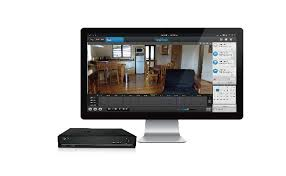Different between an NVR and a DVR
Different between an NVR and a DVR
Technology:
NVR (Network Video Recorder): Works with IP cameras (Internet Protocol cameras) that transmit digital video data over a network connection (Ethernet cable or Wi-Fi).
DVR (Digital Video Recorder): Deals with analog video signals from traditional CCTV cameras transmitted over coaxial cables.
Image Quality:
NVR: Supports high-definition (HD) or even 4K resolution video from IP cameras, providing much sharper and clearer images for identification purposes.
DVR: Limited to standard definition (SD) resolution, resulting in lower quality footage with less detail.
Scalability:
NVR: Easier to expand your system by simply adding new IP cameras to the network.
DVR: Adding new cameras requires complex and expensive cabling with additional coaxial cables for each camera.
Features:
NVR: Offers a wider range of advanced features, including:
Remote Access: Allows easy remote access to live and recorded footage from anywhere with an internet connection.
Video Analytics: Can detect specific events like people or vehicles entering restricted zones.
Integration: Integrates with other smart home devices or security systems for a more comprehensive solution.
DVR: Generally offers fewer features. Some models might have basic features like motion detection and scheduled recording. Remote access options are typically limited.
Other Considerations:
Cost: Initially, NVRs might be slightly more expensive than DVRs. However, the cost difference is narrowing as IP camera technology becomes more affordable.
Future-proof Technology: NVRs offer a more future-proof solution with greater potential for upgrades and integration with newer technologies.
Here's an analogy to understand the difference:
Think of a DVR as a traditional VCR that records analog signals on cassette tapes, offering limited resolution and features.
Think of an NVR as a modern DVR that records digital video files on a hard drive, providing high-definition quality and advanced features.
In essence, NVRs are the preferred choice for modern security systems due to their superior image quality, scalability, features, and future-proofing capabilities. However, DVRs can still be a suitable option for existing analog camera systems that aren't ready to be upgraded.
Similarity between NVR and DVR
Despite their significant differences, NVRs (Network Video Recorders) and DVRs (Digital Video Recorders) do share some similarities:
Core Functionality:
Both NVRs and DVRs serve the same core purpose: recording and storing video footage captured by security cameras for playback and monitoring purposes.
Both offer recording options like continuous recording, motion-triggered recording, and scheduled recording.
Playback and Monitoring:
Both NVRs and DVRs allow playback of recorded footage for reviewing past events.
Both can be connected to a monitor for live viewing of security camera feeds.
Basic Features:
Some basic features might be common across both NVRs and DVRs, such as motion detection with basic zone configuration.
Physical Appearance:
Both NVRs and DVRs are typically standalone electronic devices and often come in similar housing options, such as rack-mounted or desktop models.
Upgradability (to a certain point):
While NVRs offer more potential for future upgrades and integration with newer technologies, both NVRs and DVRs can sometimes be upgraded with additional storage capacity through external hard drives or network-attached storage (NAS).
General Observation for Existing Systems:
Both NVRs and DVRs can be used with existing CCTV infrastructure, depending on the camera type. NVRs work with IP cameras and DVRs work with analog cameras. So, if you have an existing analog camera system and are not looking for a complete overhaul, a DVR might suffice.
However, it's important to remember that the advantages of NVRs outweigh those of DVRs in most situations. NVRs offer significant improvements in image quality, scalability, features, and future-proofing for modern security systems.




Comments
Post a Comment